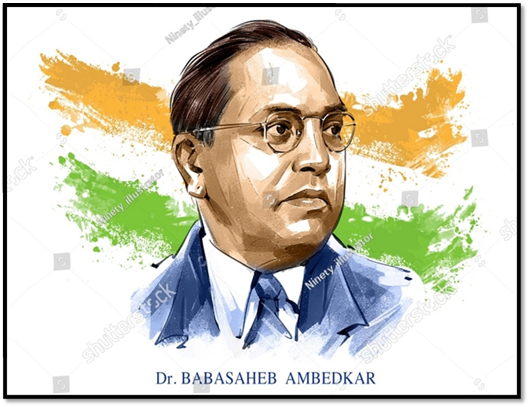Dr. B.R. Ambedkar: The Architect of Social Justice
Ambedkar Jayanti, celebrated on April 14th every year, marks the birth anniversary of one of India’s greatest leaders, Dr. Bhimrao Ramji Ambedkar. A visionary, reformer, and the chief architect of the Indian Constitution, Dr. Ambedkar dedicated his life to eradicating social discrimination and empowering the marginalized. His contributions to law, politics, education, and social reform continue to shape modern India.
Born in 1891 in Mhow (Madhya Pradesh) into a Mahar family, a Dalit community considered “untouchable” by the oppressive caste system, Dr. Ambedkar faced humiliation and discrimination from an early age. Despite his brilliance, he was subjected to untouchability—denied access to education, water, and equal rights.
However, his determination to overcome these barriers led him to pursue higher education. He graduated from Elphinstone College in Bombay, later earning multiple degrees, including doctorates from Columbia University (USA) and the London School of Economics (UK). He was the first Dalit in India to achieve such academic excellence, proving that knowledge is the key to liberation.
Ambedkar’s life mission was to dismantle caste-based oppression. He firmly believed that education, self-respect, and political representation were essential for empowering the Dalit and other marginalized communities.
- Mahad Satyagraha (1927): He led a movement in Mahad, Maharashtra, advocating for the right of Dalits to access public water sources. This was a significant step against untouchability.
- Temple Entry Movement: He demanded the entry of Dalits into Hindu temples, a right denied to them for centuries.
- Poona Pact (1932): Dr. Ambedkar fought for separate electorates for Dalits, but under pressure from Mahatma Gandhi, agreed to the Poona Pact, which allowed reserved seats for Dalits in legislatures but within the general electorate.
Dr. Ambedkar was appointed as the Chairman of the Drafting Committee of the Indian Constitution. Under his leadership, India adopted a progressive, inclusive and democratic Constitution, ensuring:
- Abolition of Untouchability (Article 17)
- Equality before Law (Article 14)
- Right to Freedom, Education, and Protection against Discrimination
- Reservation Policies to uplift Scheduled Castes (SC), Scheduled Tribes (ST) and Other Backward Classes (OBC)
His foresight ensured that India’s legal and social framework protected the weaker sections and guaranteed justice and dignity for all.
Despite his efforts, Dr. Ambedkar felt that Hinduism would never allow Dalits to be treated as equals. On October 14, 1956, he embraced Buddhism along with thousands of followers, marking one of the biggest mass conversions in history. He found Buddhism’s principles of equality, non-violence and rationalism to be aligned with his vision for social justice.
Dr. Ambedkar passed away on December 6, 1956, leaving behind a legacy of empowerment and justice. He was posthumously awarded the Bharat Ratna in 1990, India’s highest civilian honor.
Today, his ideas continue to influence:
- Dalit movements and social justice policies
- Reservation systems in education and employment
- Legal frameworks protecting human rights
- The rise of Dalit and backward caste leaders in politics

Ambedkar Jayanti: A Celebration of Equality
Ambedkar Jayanti is not just a remembrance of his birth, but a reaffirmation of his ideals—justice, liberty, equality and fraternity. On this day:
- Rallies, seminars, and cultural programs are held.
- His followers pay tribute at Chaitya Bhoomi (Mumbai) and Deekshabhoomi (Nagpur).
- Discussions on caste equality, education and empowerment take place nationwide.
His words still echo in India’s conscience:
“I measure the progress of a community by the degree of progress which women have achieved.”
Dr. B.R. Ambedkar was not just a leader of Dalits but a leader of modern India. His tireless fight against caste discrimination, his vision for a just society and his role in shaping the Indian Constitution have made him a symbol of empowerment and resilience.
Ambedkar Jayanti is a reminder that his dream of a caste-free, equal society is still a work in progress—and it is our duty to continue his fight for justice and dignity for all.
Jai Bhim!
By: Ms. Jyoti Kumari (Officer – Delhi)


